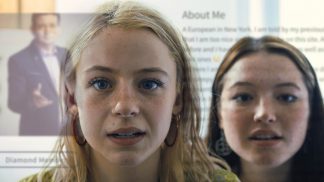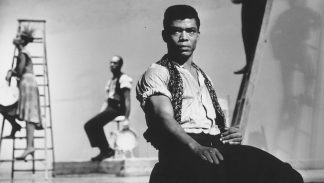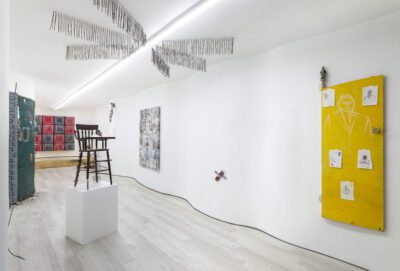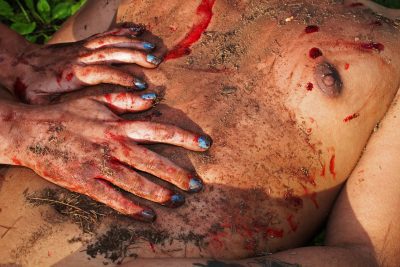Ruth Negga and Tessa Thompson appear in 'Passing' by Rebecca Hall. Courtesy of Sundance Institute (photo by Edu Grau).
The Brooklyn films and filmmakers at Sundance this year
Homegrown docu-fiction hybrids and boundary-pushing Black movies hit the popular indie film festival
Keep your skis packed away because you won’t need them at Sundance this year. The 2021 Sundance Film Festival is only days away, but this year, your new favorite indie movies won’t debut in snow draped Park City, Utah. Instead, for reasons you definitely don’t need reminding of, you can watch the year’s latest offerings from the comfort of home. To make home viewing even easier, Sundance reduced the number of feature films from 118 last year to 72 in 2021.
Despite the changes, one thing hasn’t: Brooklyn has a major footprint at Sundance. Movies filmed in the borough include the documentary “Searchers,” about Brooklynites looking for love on dating apps during the summer of Covid, and “Passing,” about two Black women who pass for white in 1920s New York City. Other movies hitting Sundance were made by Brooklyn artists like Jamila Wignot, director of the choreographer Alvin Ailey documentary “Ailey,” and Alexis Gambis, whose movie “Sons of Monarchs” is about a Mexican scientist who has to face a troubling past.
This year’s festival runs from January 28 to February 3. Check out how to buy tickets and passes to the festival. Single film tickets are $15 and other ticket packages are available at Sundance’s website. Here are the Brooklyn filmmakers and films you can’t miss:
BROOKLYN MOVIES
Searchers, Director: Pacho Velez
If director Pacho Velez’s documentary “Searchers” did nothing else, it shows how beautiful it is to see Brooklynites find happiness during a pandemic. Thankfully, the movie does a lot more. Opening on a shot of a young Black man on Tinder while his friend watches, ”Searchers” shows how we present ourselves when making private, personal judgements when swiping left or right. Retirees, gay men, trans women and more navigate their prefered dating apps, searching for their special someone. The film captures the irony of modern intimacy as people disappear into their devices in order to connect with those around them—including the film’s own director.
Passing, Director: Rebecca Hall
Passing is an adaptation of the Harlem renaissance novella of the same name by Nella Larsen. It tells the story of two Black women, Irene Redfield and Clare Kendry (played by Ruth Negga and Tessa Thompson, pictured at the top of this page), each of whom can ‘pass’ as white but choose to live on opposite sides of the color line in 1929 New York. It is an intimate, highly subjective narrative that uses ‘passing’ both literally and metaphorically to explore not just racial identity, but gender: the responsibilities of motherhood, sexuality and the performance of femininity. At heart, it is a psychological thriller about obsession, repression, and the lies people tell themselves and others to protect their carefully constructed realities.
MOVIES BY BROOKLYN FILMMAKERS
Faya Dayi, Director: Jessica Beshir
“‘Faya Dayi’ is a journey that was generated from a personal space,” says Beshir. When she was in the tenth grade, she was uprooted from Ethiopia, from her family and friends in Harar, to escape the violence and political turmoil of the Derg communist regime. It left her with a sense of loneliness that she realized was healing with each trip back. Over a period of 10 years, she visited the region and shot the story of Harar. Although the people persist, they lost their lands, were politically marginalized, and their religion was banned by successive regimes. They grow Ethiopia’s most lucrative cash crop, khatm, which is a leaf that Sufi Muslims chew for religious meditations. It’s their major source of income and a symbol of revolt, a way for people to cope under oppression. The story follows Mohammed, a 14-year-old who works as an errand boy for the daily khat chewers. He becomes anxious for a better life, but to have it, he must make a treacherous journey across the Red Sea to Saudi Arabia. Jessica Beshir is based in Brooklyn where she edited the film. Shot in black and white, it has a haunting, visceral quality that helps connect viewers to the nonfiction basis of this dreamlike film.
Ailey, Jamila Wignot
Told in his own words, “Ailey” is an immersive portrait of visionary choreographer Alvin Ailey—who founded the Alvin Ailey American Dance Theater at just 27. The film interweaves Ailey’s astonishing journey with an intimate glimpse into the studios of the company today, where renowned hip-hop choreographer Rennie Harris builds a new commission inspired by Ailey’s life and work. Ailey’s dances are an ode to the beauty and drama found in the lives of everyday people. “In his first masterwork, Blues Suite, it was his kinfolk dancing away the night in a juke joint in Rogers, Texas,” Wignot says. “To me it just as meaningfully captures the spirit that permeated Fort Greene’s Frank’s Lounge (RIP) or that fuels First Saturdays at the Brooklyn Museum. The film is a love letter to Black joy, to the beauty of bodies in motion, to the transformative power of the arts, and above all else to possibility.”
Sons of Monarchs, Alexis Gambis
Every year Sundance announces the winner of the Alfred P. Sloan Feature Film Prize in advance of the festival. The prize is awarded to an outstanding movie focusing on science or technology as a theme, or depicting a scientist, engineer or mathematician as a major character. This year’s recipient is Park Slope’s own Alexis Gambis, who will debut his second film “Sons of Monarchs” at Sundance this year. “I live in Park Slope, and a great deal of the writing, pre-production, and even post-production took place a few blocks from Prospect Park in my apartment,” Gambis says. The film follows Mendel, a Mexican biologist living in New York. When his grandmother’s death triggers trauma from his past, he returns to his hometown to confront it. Reflecting on his dual identity as Mexican and American, a personal and spiritual metamorphosis is sparked inside of him. And be on the lookout for Gambis’ next movie, “Mousetrap,” which will be shot entirely in Brooklyn and delve into his childhood in Park Slope.
You might also like 






























